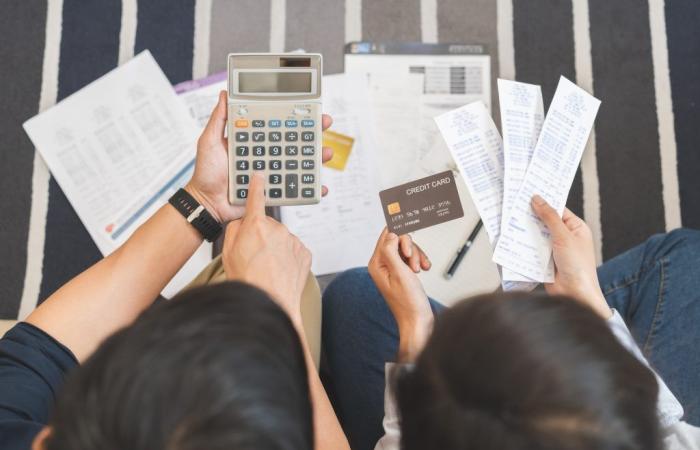Provoking the expected discontent of Ivorians, the increases in electricity prices decided by the government of Alassane Ouattara nevertheless remain lower than those practiced by neighboring countries.
It is a decision which, like any price increase, has difficulty getting through to the local population. Since 1er Last January, electricity prices increased by +10% in Ivory Coast: the average price per kilowatt/hour (KWh) therefore increased, on this date, from 79 to 87 CFA francs. An increase which concerns all users of the Ivorian electricity network, individuals and businesses. Announced at the end of December 2023 by the Minister of Energy, this “tariff readjustment” applies to some 3.9 million subscribers in the country.
“Upon a proposal from the National Electricity Sector Regulatory Authority (ANARE-CI) and after analysis by the Advisory Commission on Electricity Tariffs, the government decided to adjust the price of electricity by 10%”, Minister Mamadou Sangafowa Coulibaly announced during a press conference: “this adjustment applies to all electricity subscribers, from January 1, 2024”.
The consequences of Covid and the war in Ukraine
Under what conditions did this price increase occur and how do the authorities justify it? For the government, it was, nothing less, than saving an Ivorian electricity sector facing considerable financial difficulties. In the year 2023 alone, operating losses thus reached the record amount of 127 billion CFA francs (the equivalent of 193 million euros), compared to just over 33 billion CFA francs the previous year and 57 billion in 2021.
Heavily in deficit, the situation of the electricity sector in Côte d’Ivoire can be explained, in part, by exogenous factors. The Covid-19 pandemic and the war in Ukraine have strongly affected the global energy market, leading to a substantial increase in energy prices. Purchases of fossil fuels, which account for more than 75% of Ivorian electricity production, increased by more than 16% in 2022, to reach 354 billion CFA francs (including 309 billion dedicated to the purchase of natural gas) .
Prices that remain cheaper in Ivory Coast than in its neighbors
In other words, the increase in prices which came into force on 1er January was an almost existential decision for the Ivorian electricity sector. Indeed, even by applying an increase of +10%, the differential between the production price of the kilowatt/hour (89 FCFA) and that of sale (79 FCFA) remains to the disadvantage of the electricity sector; To close this gap, it would have been necessary to impose an increase of +27%. Furthermore, and still taking into account the recently announced increase, the price of electricity remains lower in Côte d’Ivoire than in neighboring countries.
In the sub-region, the average price of electricity oscillates between 101 and 132 FCFA/KWh. This has not prevented certain West African countries from also increasing their own prices during the recent period. Electricity prices, for example, recorded an increase of +22% in Senegal, +35% in Cameroon and even +35 to +66% in Ghana. In other words, electricity remains relatively cheaper in Côte d’Ivoire than elsewhere in Africa, and prices are increasing less severely than in its neighbors, where governments are nevertheless facing the same problems (war in Ukraine, etc.).
The good performance of the Ivorian electricity system
Even justified, the increase remains difficult to swallow for Ivorians. And all the more so as it follows a previous increase in prices (+9.6%), which came into force on 1er July 2023 but which this time only affected 11% of subscribers in Côte d’Ivoire, or 412,000 customers. A succession of unpopular measures taken by the Ivorian president, Alassane Ouattara. The latter wanted to reassure his fellow citizens, both individuals and business leaders, who are already faced, as in most countries in the world, with the general increase in the cost of living.
If the Ivorian consumer associations have no problem reminding the Head of State of his campaign commitments promising a drop in prices thanks to the liberalization of the electricity market, the authorities are also putting forward their own arguments. And the government highlights the good overall performance of the Ivorian electricity system, the coverage rate having jumped from 33% in 2011 to 87% today and the outage times being, in Côte d’Ivoire, among the lowest observed on the continent.
Towards a drop in prices thanks to natural gas deposits?
Rising prices are, however, not inevitable. Rich in natural resources, Côte d’Ivoire has significant gas reserves underground. Aware of the discontent caused by inflation, the government is pushing the start of production at several fields, such as Baleine, in order to inject this natural gas into domestic electricity production circuits. A glimmer of hope, which could well help to reduce pressure – both on domestic demand, which grows by 10% each year, and on society.






